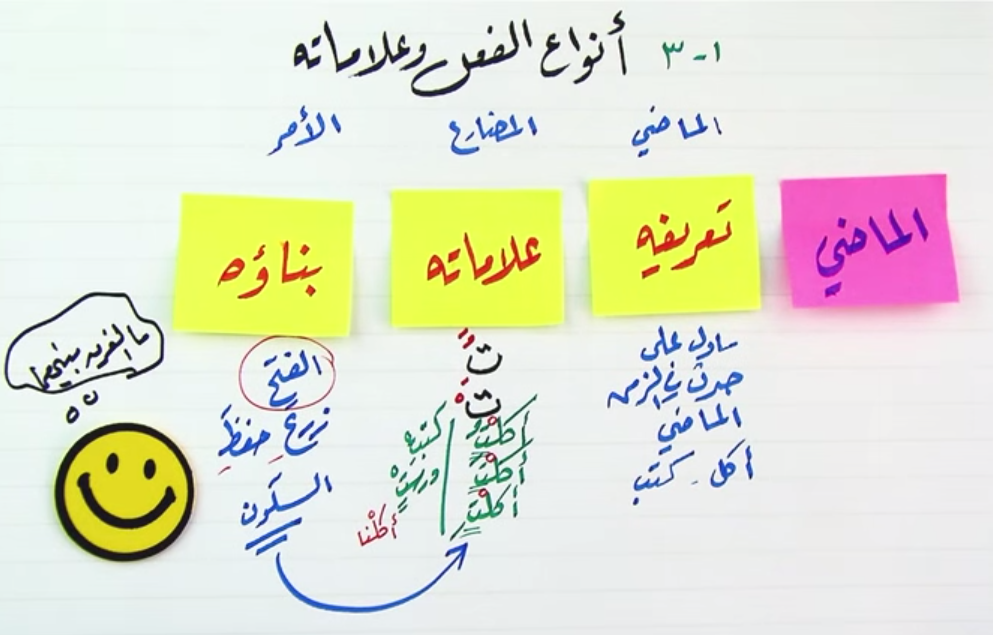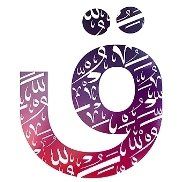annaḥw wa ṣṣarf
Introduction to Arabic Morphology and Syntax
Glossary of Arabic Grammatical TermsAbout Arabic Grammar course
Arabic is a language of rare breadth and extension in the world, a language like perhaps no other in the degree to which it embodies the culture and politics of its speakers. It is, however, a language, and it has been studied from a number of classical grammatical perspectives. Even here Arabic has structural features that set it apart from many, sometimes most, of the world’s languages.
The phenomenon of emphasis (pharyngealization) of consonants is a hallmark of the language and has engendered numerous studies both in phonetics and in phonology. What is emblematic of Arabic, however, hardly exhausts the interest of Arabic for linguistics. Stress in Arabic has been of central interest in phonological theory.
In morphology, an ongoing debate surrounding Arabic and many other Semitic languages is the status of the consonantal root as a morphemic element. The Arabic grammatical tradition itself viewed the stem, not the root, as the basis of morphology, and arguments from within contemporary morphological theory have been developed for this as well. But equally, psycholinguistic studies on the basis of carefully constructed experiments have interpreted the consonantal root as having a crucial role in morphological processing.
Besides the Arabic grammatical tradition itself, there are two further prominent approaches to Arabic grammar. The older one is the philological tradition, with which the study of Arabic grammar in the West began. Besides its general interest in Arabic grammar, this tradition incorporates cultural issues and has been present at the interface of Arabic texts of all genres and language. The other is more recent and is based on the precepts of theoretical grammar, particularly syntactic theory in the generative tradition, which endeavors to locate what is specifically Arabic within a broader program of universal. All of the formal grammatical domains feed into the growing domain of computational linguistics and into the broader field of natural language processing.
Finally, the classical lexicographical tradition has its counterpart in contemporary lexicography, a field increasingly drawing the vast online publishing industry in Arabic for its sources . Here again one experiences the special challenges confronting the Arabic lexicographer, for instance, whether to lemmatize according to root or stem, how to sublemmatize parts of speech, and whether to lump polysemously or to differentiate identical forms.
About Arabic Grammar Course
This Simple Arabic Grammar Course is important to complete most of our courses, it is important to any student who completed beginner Arabic course and can read (recognize the letters of the alphabet in its connected shapes) and pronounce them if words are written with full vocalization, to complete this course in order to have a strong knowledge of the following topics:Interrogatives, adjectives, gender, letters with meanings; for example, what is the eight functions of the taa marboutah, degrees of comparisons, definite and indefinite particles, voice, moods, SVO words order, Personal pronouns, conjunctions, nominal and verbal suffixes, active and passive participle, been able to conjugate regular past and present tense verbs, and change present tense into future tense and imperative, knowledge of the ten verb forms and been able to recognize them in a text, and have knowledge about their different, and often their subtle meanings, been able to change verb forms above one to their infinitive, preposition, relative pronouns, demonstrative pronouns. Be able to convert verbs into active and passive participles of trilateral verbs and more than trilateral verbs, basics of case endings, adjectives, Idafa, tanween, sound masculine plural, sound feminine plural, broken plural, negation, and numbers. We may cover other topics if the student is performing well and desire to know more about Arabic grammar.
في هذا الفُصلِ سيتم دراسة النحو والصرف معاً من كتب نحوية عربية، هذا الفصل مناسب للطلاب العرب والاجانب الذين لهم القدرة اللغوية على إستيعاب الشرح باللغة العربية الفصحي، وإذا كان بعضهم على علم باللغة العامية بدرجة اكبر فسيتم إستعمالها في البداية لأعداد الطلاب لتقبل اللغة الفصحى في مراحل متقدمة من دراستهم وبعد تلك الفترة الاعدادية لن يتم إستعمالها إلا بأقل القليل لإن تمكن الطالب من التحدث بالفصحى هو الغرض الاساسي من تدريس هذا الفصل. هذا الفصل مناسب ايضأ للاطفال إذا كانوا على علم كاف باللغة العربية بشقيها
Course tuition:
$199
Location:
Online
Textbook:
Free handouts
Instructor:
T. Mahfouz. Ph.D.
Quorum Requirement:
One students.
Course Duration:
between five and ten hours














